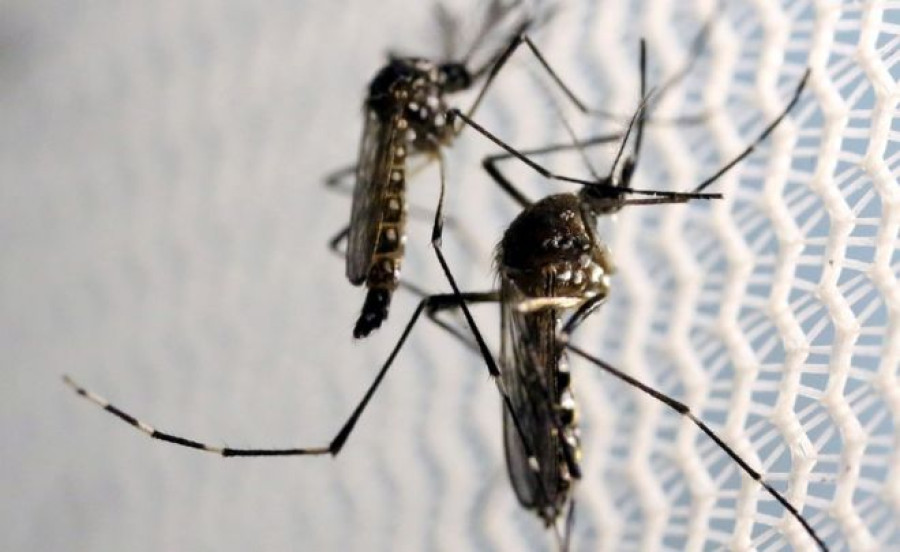Health
Outbreak of Zika virus in India raises concern in Nepal
Dengue-spreading mosquitoes also spread the Zika virus, and the country is currently witnessing a dengue outbreak.
Post Report
The Epidemiology and Disease Control Division says it has been closely monitoring the outbreak of the Zika virus in India, as the spread of the deadly disease is a matter of serious concern in neighbouring Nepal due to multiple risk factors.
Currently, Nepal is tackling a dengue outbreak, and the same vectors—Aedes aegypti and Aedes albopictus—that spread the dengue virus also spread the Zika virus.
“Unrestricted cross-border movements of people from the two countries and the proximity and presence of virus-spreading vectors are the main risk factors,” said Dr Gokarna Dahal, chief of the Vector Control section at the Division. “Some hospitals and laboratories carry out other tests when they get negative reports of patients having dengue-like symptoms.”
Zika causes microcephaly, a condition in which babies are born with underdeveloped head and brain damage. It is also linked to Guillain-Barre syndrome, a condition in which the immune system attacks the nerves causing muscle weakness and sometimes paralysis.
Last week, India reported three cases of zike infection in Maharashtra state. Since 2016, India has witnessed Zika outbreaks every year except in 2019 and 2020.
A risk assessment survey carried out in 2018 with the technical and financial support of the World Health Organisation showed that Nepal was a high-risk country for dengue and Zika outbreaks.
Dengue-spreading mosquitoes—Aedes aegypti and Aedes albopictus—also transmit Zika and Chikungunya viruses, which means the vectors are present throughout the country.
Doctors say all that is needed for an outbreak is a Zika-infected person, which could be anyone. Outbreaks of the disease in India every year and global movement of the people have increased the risk of an outbreak in our country too, according to them.
The Ministry of Health and Population had carried out Zika surveillance in the past and tested samples of people having dengue-like symptoms, but the results came back negative, according to Dahal. The World Health Organisation Nepal had provided financial as well as technical support to acquire the technology to carry out the testing of the viruses, officials said.
Doctors say Zika virus symptoms match those of the dengue virus—mild fever, rashes, muscle pain, headache, red eyes and a general feeling of discomfort in up to 80 percent of cases.
Studies show that pregnant women and their foetuses are at high risk of Zika infection, as the virus causes microcephaly in the foetus.
Zika virus was first identified in Uganda in 1947 in monkeys, according to the UN health agency. It was later detected in humans. Brazil saw the worst outbreak of the virus in 2015 and it has since then spread to 24 other countries. The WHO had declared Zika outbreak an international health emergency in 2016.
Meanwhile, Nepal has recorded at least 1,268 dengue cases since January this year. Of the 72 districts that reported dengue outbreaks, Kathmandu has the highest number of cases: 141.
Public health experts say reported cases could be just the tip of the iceberg, as around 80 percent of those infected are asymptomatic.




 10.12°C Kathmandu
10.12°C Kathmandu













